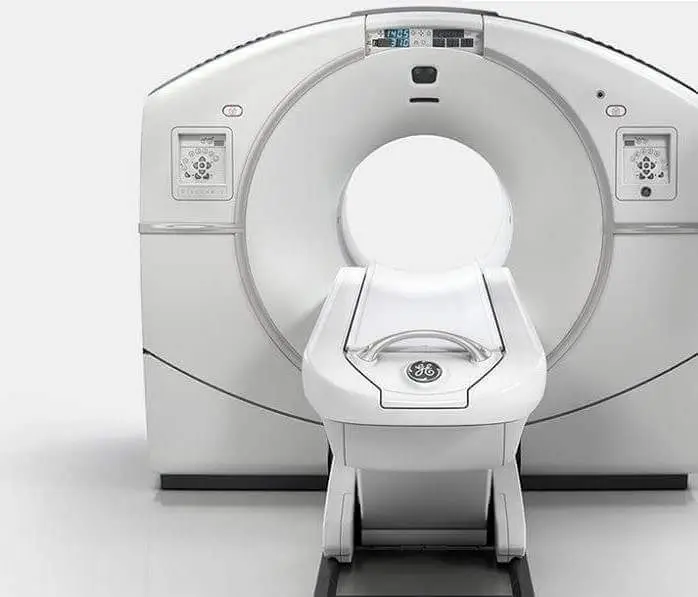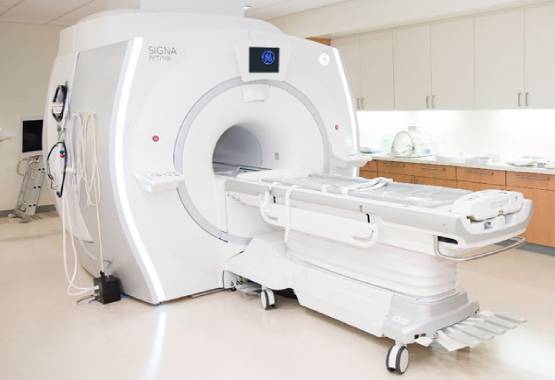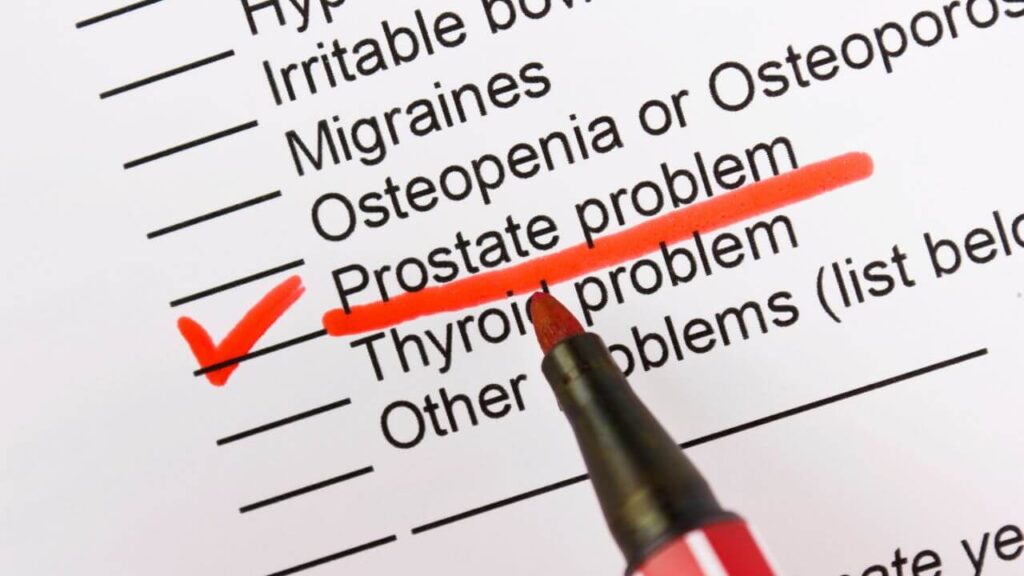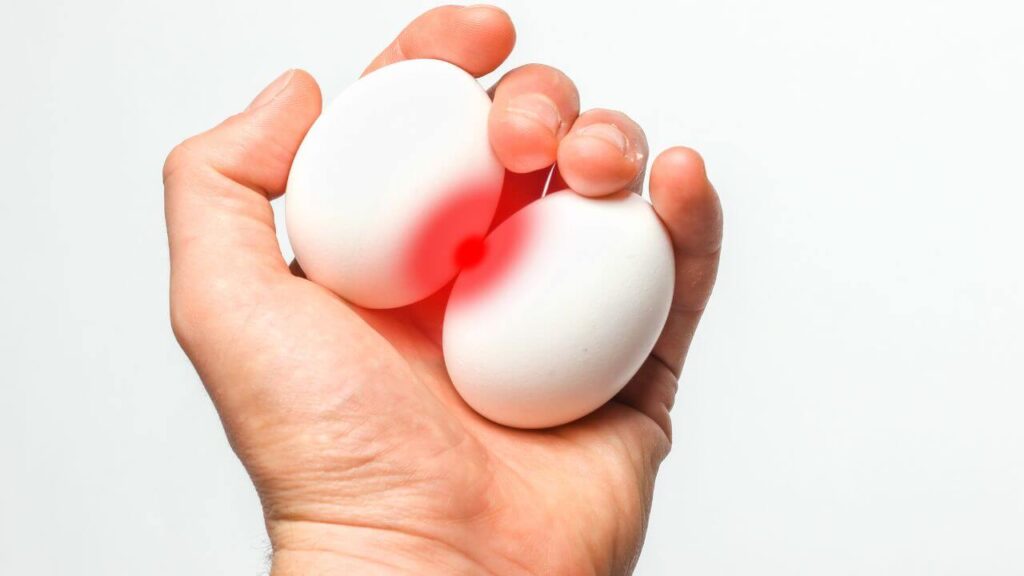


We have in-house Radiologist at MRI Chandigarh so, you will get same day report with accurate results.
We provide free pick and drop facility for our patients in tricity for MRI, CT Scan, PSMA PET Scan, DOTA PET Scan and PET Scan with cheapest price in Chandigarh.
We are equipped with World Class MRI Scan Facility at Reasonable pricing. With best in class skilled technicians.
Get the most comfortable MRI scan in Chandigarh with high quality 1.5T or 3T machines at best and affordable price.




MRI Chandigarh is your one-stop destination for advanced medical imaging and diagnostic services in Chandigarh. As one of the most trusted MRI centres in Chandigarh, we provide cutting-edge radio-imaging solutions, including both 1.5 Tesla and 3 Tesla MRI scans, at highly competitive prices—without compromising on quality.
We offer quick, accurate, and affordable MRI scans in Chandigarh with no hidden charges. Our experienced radiologists ensure timely results and, if needed, offer recommendations for further medical consultation based on your MRI report.
The cost of an MRI scan in Chandigarh varies depending on the type of scan and the diagnostic center. Prices typically start from ₹2,800 to ₹5,500. For example, 1.5 Tesla MRI scans may begin at ₹2,800, while 3 Tesla MRI scans are priced higher due to their advanced imaging capabilities. It's advisable to contact local MRI centers for precise pricing.
Preparation for an MRI scan generally involves minimal steps. For most MRI scans, you can maintain your regular diet. However, for abdominal scans, fasting for 3-4 hours prior to the procedure may be required. Wear loose-fitting, metal-free clothing, and inform your radiologist about any existing medical conditions, allergies, or implants.
Yes, MRI scans are generally considered safe as they do not use ionizing radiation. However, patients with certain implants like pacemakers should inform their doctor beforehand. It's crucial to remove all metal objects before the scan to prevent any risks associated with the MRI's strong magnetic field.
The duration of an MRI scan depends on the area being examined but typically ranges from 15 minutes to over an hour. For instance, a brain MRI may take about 30 to 60 minutes, while joint MRIs like knee or shoulder can take 15 to 45 minutes. Advanced 3 Tesla MRI machines can perform scans faster, enhancing patient comfort.
Chandigarh hosts several reputable MRI centres equipped with state-of-the-art technology and experienced radiologists. Centers like MRI Chandigarh are known for their advanced imaging services, including 3 Tesla MRI scans, and patient-centric care. It's recommended to research and choose a center that best fits your diagnostic needs.
While some diagnostic centers may allow self-referred MRI scans, it's advisable to consult with a healthcare professional to ensure the appropriateness of the scan and to provide the necessary clinical context for accurate interpretation.
Yes, certain MRI centres in Chandigarh offer complimentary pick-up and drop-off services within the Tricity area (Chandigarh, Mohali, Panchkula) to enhance patient convenience. It's best to inquire with the specific MRI center about the availability of such services. We provide free pick and drop in tricity for all scans including CT Scan & PET Scan too.
We are the leading diagnostic centre in Chandigarh providing comprehensive radio diagnostic services including MRI, CT Scan, PET Scan, Ultrasound, X-ray, Echocardiogram, ECG, and EEG at affordable rates with same-day reporting.

Experience the most comfortable and advanced MRI scans in Chandigarh with our high-field strength 1.5 Tesla and 3.0 Tesla machines. Our state-of-the-art MRI technology delivers exceptional quality diagnostic images for accurate results. Located in Sector 34, we provide the most reliable MRI services in Chandigarh Tricity at affordable rates.

Our Chandigarh diagnostic center provides world-class CT Scan facilities at the most competitive prices in the tricity region. Equipped with low-radiation dose CT scanners and operated by skilled technicians, we ensure the safest and most accurate CT scan services in Chandigarh, Mohali and Panchkula area.

Get the most affordable PET scan in Chandigarh at just Rs.16,000, the lowest price in the tricity region. Our all-inclusive package offers free pickup and drop, complimentary meals, and patient comfort amenities. Our Chandigarh PET scan center uses state-of-the-art technology for early cancer detection and treatment monitoring.

Our Chandigarh diagnostic center offers high-precision ultrasound services including 2D, 3D, and 4D scans. We use latest technology equipment at our partner diagnostic facilities across Chandigarh Sectors 34, 35, and 22. Our experienced radiologists provide accurate results for abdominal, pregnancy, thyroid, and other specialized ultrasound examinations.

Our network of partner X-ray centers in Chandigarh offers affordable digital X-ray services with instant results. Using advanced digital radiography technology, we provide high-quality bone and soft tissue imaging with minimal radiation exposure. Visit our X-ray diagnostic facilities in Sectors 34, 22, and 17 of Chandigarh for quick and reliable service.

Our diagnostic center in Chandigarh provides comprehensive cardiac and neurological testing including Echocardiography (Echo), Electrocardiogram (ECG), and Electroencephalogram (EEG). We offer the most affordable rates for these specialized tests in the Chandigarh region with reports prepared by experienced cardiologists and neurologists for accurate diagnosis.
As the leading diagnostic imaging center in Chandigarh, we provide comprehensive radiology services including MRI, CT Scan, PET-CT, Ultrasound, X-ray, Echocardiography, ECG, and EEG. Our state-of-the-art facilities are equipped with the latest diagnostic technology to deliver accurate results for patients across Chandigarh, Mohali, and Panchkula.
Visit our centers in Sector 34, Sector 22, or Sector 17 Chandigarh for the best diagnostic experience. Book your appointment today for high-quality, affordable diagnostic services in Chandigarh.
Our entire world changed when my father was diagnosed with prostate problems. We were informed that to rule out or confirm prostate cancer, a PET scan might be required.

I had no idea what a prostate cancer PET scan was, much less where in Chandigarh I could find one at a reasonable price.
However, after overcoming my confusion and stress, I found MRI Chandigarh to be a simple and affordable answer.
Let me tell you what I’ve learnt so that you or a loved one experiencing the same uncertainties will know what to do and where to go.
One of the most sophisticated and precise imaging methods for prostate cancer is a PSMA PET scan (Prostate-Specific Membrane Antigen).

It locates prostate cancer cells precisely and tracks their movement throughout the body. In contrast to older approaches, it provides remarkable precision, especially in early stages or recurrent cases following radiation or surgery.
We had two concerns when our doctor suggested a PSMA PET scan:
At that point, I discovered MRI Chandigarh, a website that links people like me with the top-rated and most reasonably priced PET scan facilities in Chandigarh, Mohali, and Panchkula.
They assisted me in scheduling an appointment for the same week with a reputable facility that offers up to 50% savings without sacrificing care or technology!
The price of a PSMA PET scan in Chandigarh usually varies between ₹22,000 and ₹35,000, contingent on the facility and centre.

However, we paid ₹18,500 to MRI Chandigarh for the procedure, which included the consultation and results.
You won’t find a better option than MRI Chandigarh if you’re searching for reasonably priced PET scans for prostate cancer in Chandigarh. I guarantee you!
We felt like someone truly cared about us the entire time, and that was important at a time when emotions were so high.

Urgency Matters: Don’t Delay A PET Scan For Prostate Cancer
Prostate cancer is curable, particularly if caught early. The timing, however, is essential. Even when PSA levels are slightly raised or when conventional imaging methods are ineffective, a PET scan can detect cancer.
Don’t delay if your doctor has suggested a PET scan to check for prostate cancer or if you’re experiencing symptoms like pelvic pain, frequent urination, or unexplained weight loss.
You can schedule your scan with MRI Chandigarh in as little as 24 to 48 hours!
Making a PET scan appointment with MRI Chandigarh is quick, simple, and smooth. Our staff will help you right away if you call us at 8699-5723-64 or send us a WhatsApp message.
Whether you require a PET scan in Chandigarh, Mohali, or Panchkula, we can assist in locating the top diagnostic facility in your area that provides excellent services at a reasonable cost.
You can also go to our website mrichandigarh.com, and provide your basic information in a form.
One of our staff will contact you to confirm your selected location, set up a time that works for you, and provide all the information you need to prepare for the scan.
From the convenience of your home, we guarantee no waiting, clear pricing, and prompt reporting. When you book a scan with MRI Chandigarh, you get guided attention at every stage!
For prostate cancer, a PET scan may be the key to a correct diagnosis, treatment planning, or excluding the worst-case situation.
Don’t wait because of cost or uncertainty!
I’ve been there and didn’t have to go through it alone because of MRI Chandigarh.
Contact them right now if you or a family member needs it.

Allow MRI Chandigarh to relieve your burden and provide rapid, accurate, and reasonably priced care.
Your peace of mind starts here!
Which PET scan is best for detecting prostate cancer?
The PSMA PET scan is known as the gold standard for prostate cancer. It has a high accuracy in detecting both local and metastatic tumours.
What is the price of a PSMA PET scan in Chandigarh?
With MRI Chandigarh, you get it for as little as ₹18,500, while the prices range from ₹22,000 to ₹35,000.
Does a PET scan hurt?
No, the process is painless and non-invasive. After receiving a tracer injection, you will lie still while the scanner captures pictures.
Do you need to visit a doctor before getting a PET scan for prostate cancer?
Yes, most centres need a referral from a doctor. MRI Chandigarh can help you find a reasonably priced consultation if you don’t already have one.
Ahmmmmm…. Really have you Cleared All Doubts? I don’t think So……
You can Call for Your Queries at 8699572364. At least Call Once We will Guide You.
If You Find Something less than actual price Specially in medical, Check Twice before you go there.
We Are trying Our Hard Best to Provide you the best To best Services what We Can Give To You.
The facility is clean, the staff is courteous, and the reports are provided in a timely fashion. All in all a great place for MRI scan in Chandigarh.
Staff is friendly I am happy centre is cleaned. Staff care the patient it is very good diagnostic centre
Used their service recently for my brother's MRI in Chandigarh and they had made it very convenient to book the scan and not just that they even told me what prerequisites I needed to take like fasting overnight. Will definitely use their service again.
Tried them for the first time for my MRI scan. Great service over the phone for appointment and from the technician who performed the scan. Got the report the same day by evening. Great experience overall.
I have got three scans done in the last few months at this centre. I recommend MRI Chandigarh to my family and friends for MRI scan if there is a need. For me most importantly the technician are very capable. Also overall not a bad experience at all. I would easily recommend this place to people i know.
3T MRI Scan in Chandigarh - 3T MRI centre is best because the fees of MRI is less as compare to all MRI centre in Chandigarh which is near by PGI. I done my MRI and the report is pretty accurate.
Fantastic experience. Everything is so managed here that you will not face any single problem. Staff members are also very polite. Recommended!
My 3rd PET CT has been done here. Really good services. Most of staff is very caring and polite. If you want to excellent results in same day, this PET CT is good option.
Had really great experience with Mri Scan in Chandigarh. The staff was really cooperative and helped me on my every visit. Doctors are really polite and guided me through. My scan went really smooth. Thank you for the best healthcare.